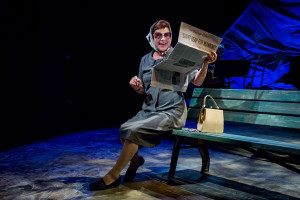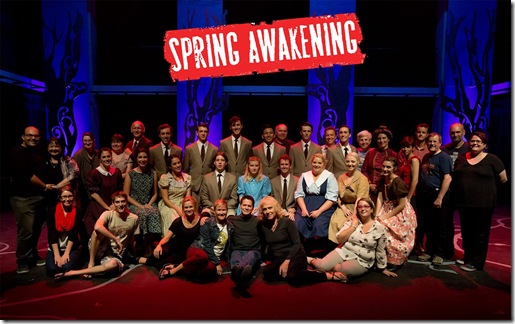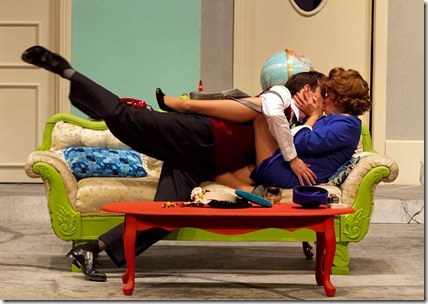Spring Awakening: The Musical, Steven Sater and Duncan Sheik’s adaptation of Frank Wedekind’s 1891 German play, is about many things: coming of age amid sexual and other late 19th century bourgeois repressions; the chasm between generations; the sometimes dire consequences of challenging the prevailing social ethos.
As well – and this seems especially important in light of our own era’s cynicism and our confused sense of what’s real and what’s merely artifice (our digital lives, for example) – the show is about trust and authenticity. It’s about discovering and trusting who one really is, finding the determination to live authentically in the face of a social order deeply opposed to the individual’s need for self-expression, love, sexual connection.
You may know the storyline already. In a nutshell, a group of young people find themselves severely constrained by their society, their church, their families. Hypocrisy, cruelty and power call the shots, causing some of the young people to crumble but others to assert their individuality and pursue what they perceive as right. The narrative, with its rock/pop score, is fundamentally dark despite the unfortunate Hollywood ending tacked on in keeping with the tradition of musicals.
Orpheus’ rendering of this story is rewarding on many levels, but it is the sense of trust and authenticity permeating the show that shines most brightly. For that, choreographer Lola Ryan deserves special applause. …
Read More Read More




